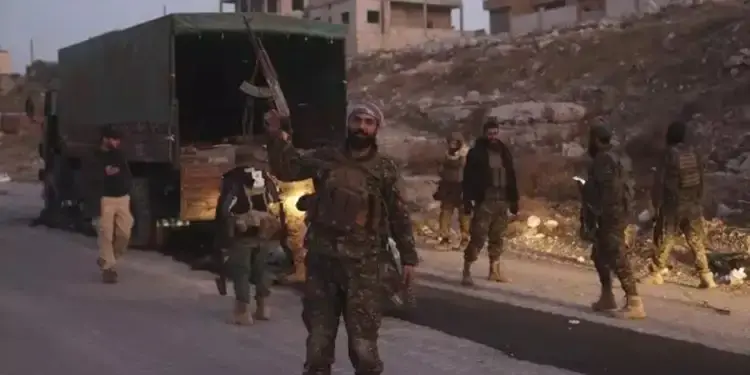In a context marked by a relative lull since 2020, Aleppo, a strategic city in northwest Syria, is again the scene of violent clashes.
Since Friday, rebel groups led by Hay’et Tahrir al-Cham have launched a large-scale offensive against government positions, marking a brutal break with three years of status quo. This revival of violence arouses fears of resurgence of the conflict, accompanied by alarming humanitarian and geopolitical consequences.
Important points
Resumption of violent fights in Aleppo, where a coordinated offensive has marked the largest climbing since 2020.
Worried humanitarian consequences, with at least four civilian people and more than 14,000 displaced people.
Exacerbated geopolitical issues, involving actors such as Russia, Iran and Turkey, in a regional context already under tension.
Hostilities started with two explosions of trapped cars, followed by a land attack on the west of Aleppo. According to Sana, four civilians, including two students, lost their lives in bombings aimed at a university building. At the same time, more than 14,000 people, half of whom are children, were moved, according to the United Nations, aggravating an already critical humanitarian situation.
The rebels, supported by allied factions, have conquered several villages and now control the M5 strategic highway, essential for the logistical and military movements of the Syrian regime.
The response of the regime and the involvement of the Allied powers
The Syrian army claims to have rejected several attacks and taken up certain territories. Supported by Russian air strikes, it intensively targets the areas controlled by the rebels near the Turkish border. Moscow, through the voice of the Kremlin, qualifies this offensive “suffering from Syrian sovereignty”, while Iran reaffirms its support for the Al-Assad regime in the fight against terrorism.
This escalation occurs in a complex regional context. Tensions south of Lebanon between Israel and Hezbollah may have encouraged the rebels to exploit a strategic window to regain ground. For its part, Turkey, concerned about the stability of its border, calls for an immediate ceasefire, fearing a new humanitarian crisis.








